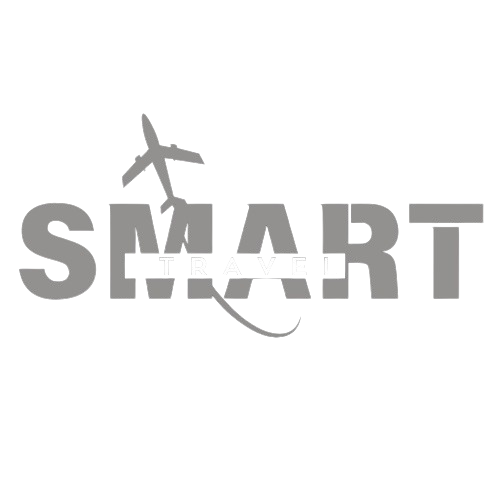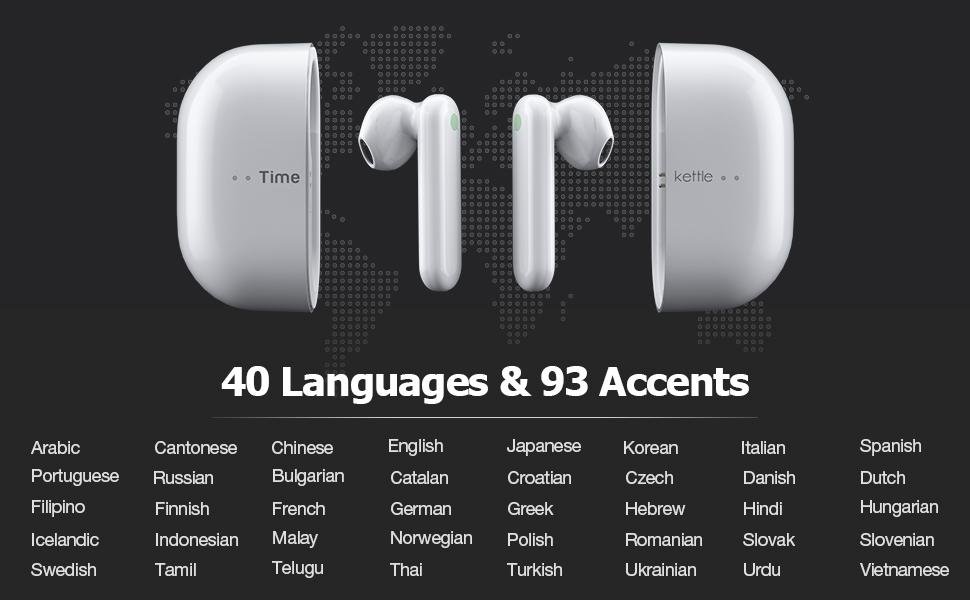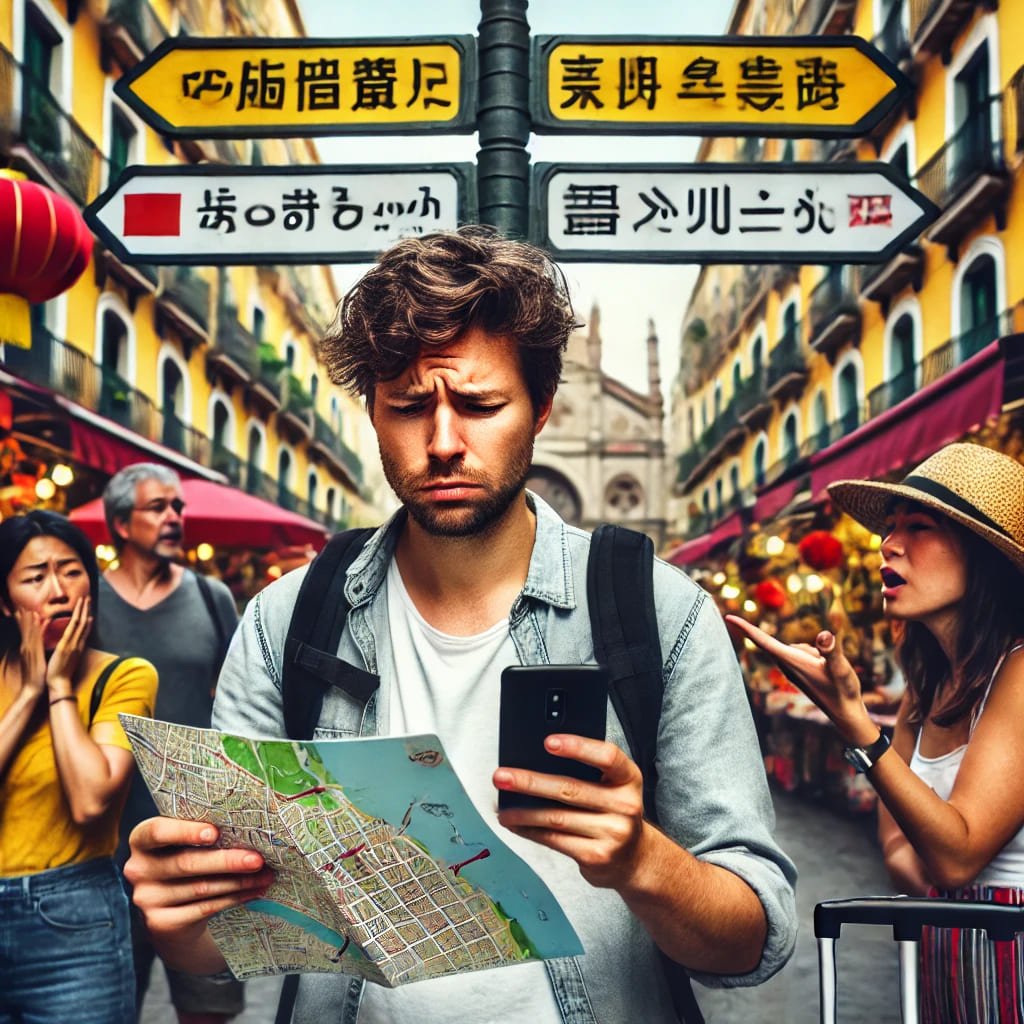
Language barriers can turn an ordinary trip into a confusing ordeal.
Have you ever been lost in a foreign city, trying to figure out directions?
At the same time, everyone around you speaks a language you can’t understand. Trust me; it’s one of those travel nightmares you don’t expect until it happens.
It’s like being dropped into a puzzle where none of the pieces fit. I’ve been there; if you travel enough, you probably have too.
But here’s the good news: this frustrating experience is slowly becoming a thing of the past, thanks to some cool tech changing how we communicate while traveling.”
Table of Contents
ToggleWhen Language Barriers Become a Real Problem
Picture this: you’ve just arrived in Tokyo. You’re hungry and pop into a small, local ramen shop.
But guess what?
The menu is all in Japanese, and no one speaks English. You order something random, hoping it won’t make your eyes water. Or, you’re in Paris, trying to find your way to a museum, but every street sign feels like a riddle. Yeah, these kinds of moments can suck the fun out of traveling.
According to Promova, According to 72% of travelers say they’ve faced serious challenges abroad because of language barriers.
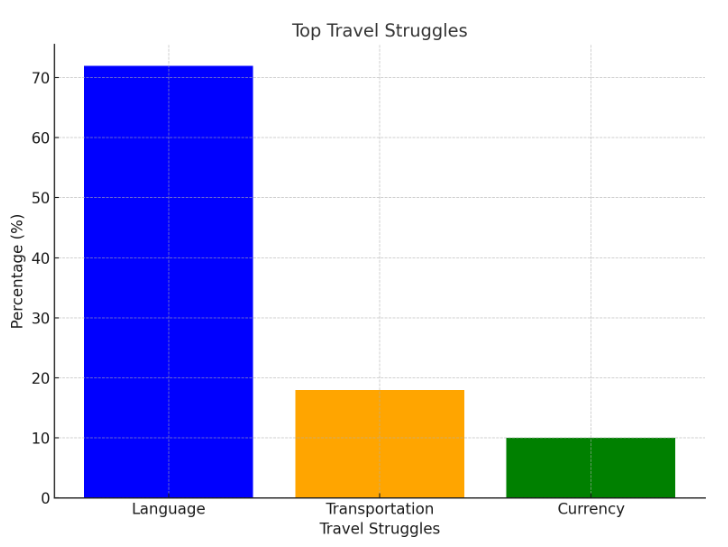
Here’s a simple bar graph showing the top travel struggles: Language, Transportation, and Currency, with hypothetical percentages. It visually emphasizes how language barriers dominate as the biggest challenge for travelers.
Business Trips Gone Wrong: How Language Barriers Mess Up Deals
It’s not just casual travelers who feel the pain. Business travelers have their own horror stories. Imagine flying halfway around the world for a big deal, only to go south because of a language misunderstanding. It happens more than you’d think.
Did you know 31% of businesses have lost deals because of language barriers?
Imagine closing in on a life-changing business agreement, and then, poof — it falls apart because a key point got lost in translation.
Not fun at all.
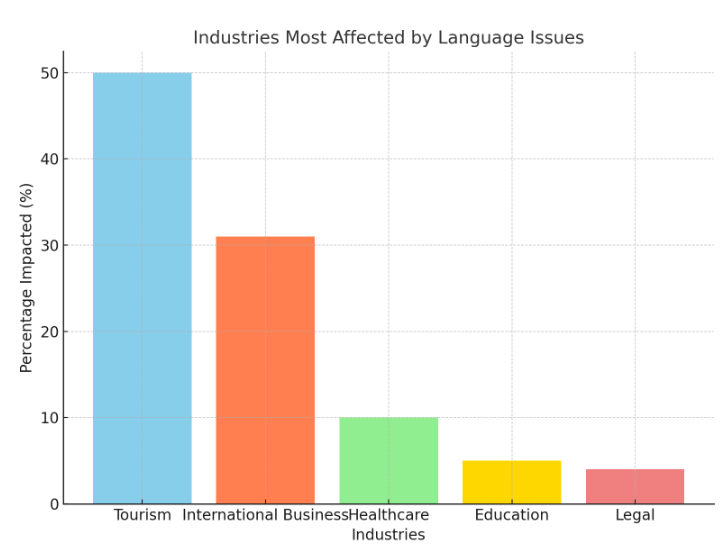
Here is the bar chart breaking down the industries most affected by language issues, including tourism, international business, healthcare, education, and legal sectors. This chart highlights how certain industries, especially tourism and business, are significantly impacted by language barriers.
Real Stories of Language Mishaps (And How to Avoid Them)
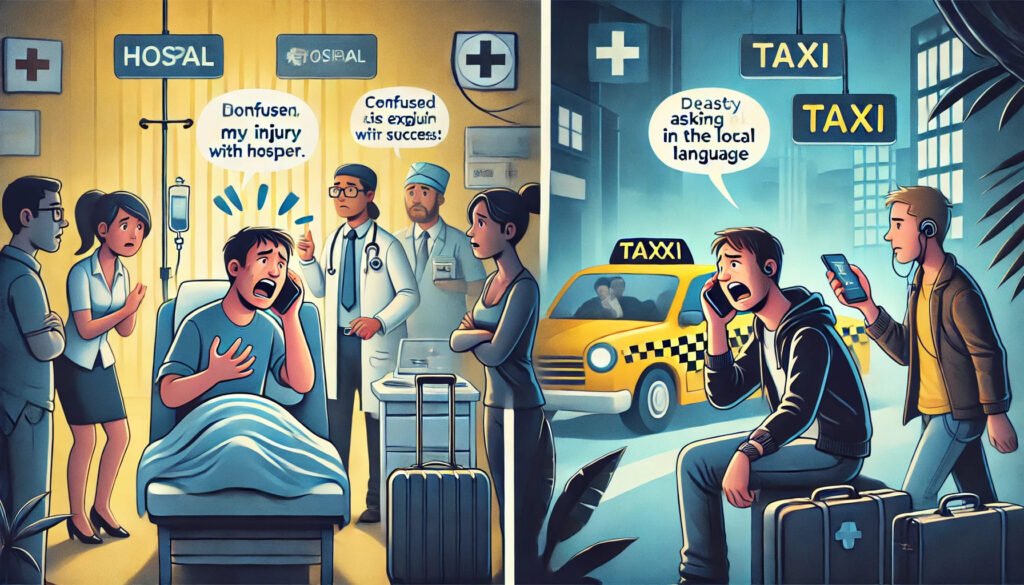
We all love a good travel story, right?
Well, let me tell you about a couple of my friends who’ve had their “lost in translation” moments.
One friend ended up in a hospital in Barcelona after falling off a bike and couldn’t explain to the doctor what had happened—talk about stress!
Another buddy was stranded in rural China, desperately searching for a taxi with no English in sight.
Long story short, they were stuck until a kind local helped out.
But here’s where things get cool: with new translation earbuds, those cringe-worthy situations are becoming a thing of the past.
These little devices are like magic. They translate conversations in real time, right in your ear. So, instead of sweating bullets trying to mime out what you need, you can pop in your earbuds and let them talk for you. I wish I had these a few years ago!
The Future of Travel Is in Your Ears
The thing is, we’re living in a golden age for travel tech.
Translation devices aren’t just gimmicks anymore—they’re useful.
In fact, 82% of travelers who’ve used translation earbuds say it made their trips easier.
With earbuds like these, you can have full conversations with locals, ask for help, or even negotiate market prices without sweating over every word.
I’ve tried them, and they work better than you’d think. Sure, they’re not perfect.
Sometimes, the translation gets funky (good luck with slang and idioms!), but overall, they’re a game-changer.
And this is just the beginning. As AI gets smarter, translation will only get better. In the near future, we might not even need to learn new languages when we travel.
Imagine a world where we all understand each other, no matter where we’re from.
Conclusion: Don’t Let Language Ruin Your Next Trip
So, consider throwing in a pair of translation earbuds next time you’re packing for a trip.
Whether you’re jetting off for a quick vacation or heading abroad for work, they’ll save you many headaches.
No more guessing what’s on the menu, getting lost in translation, or missing out on local experiences because of language barriers.
You can focus on what matters—enjoying your trip.
